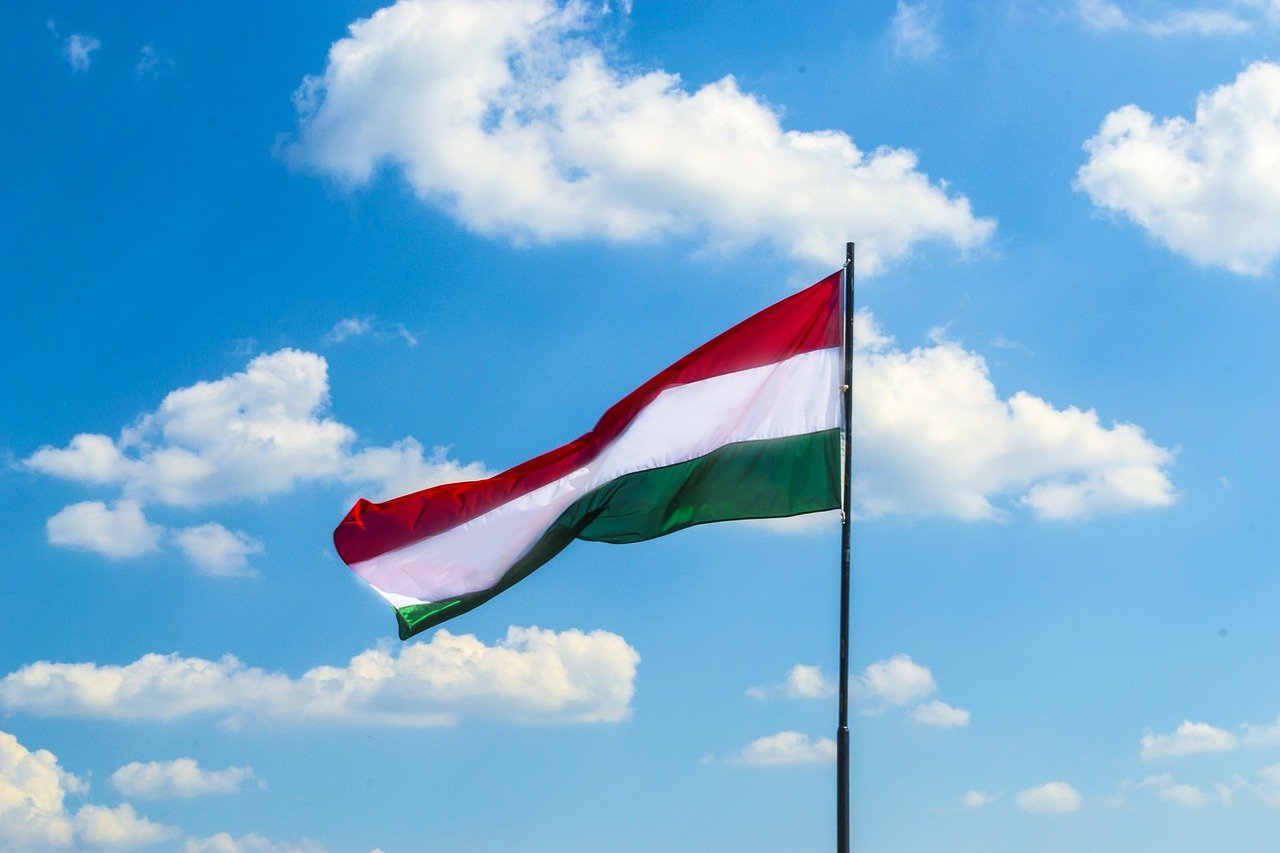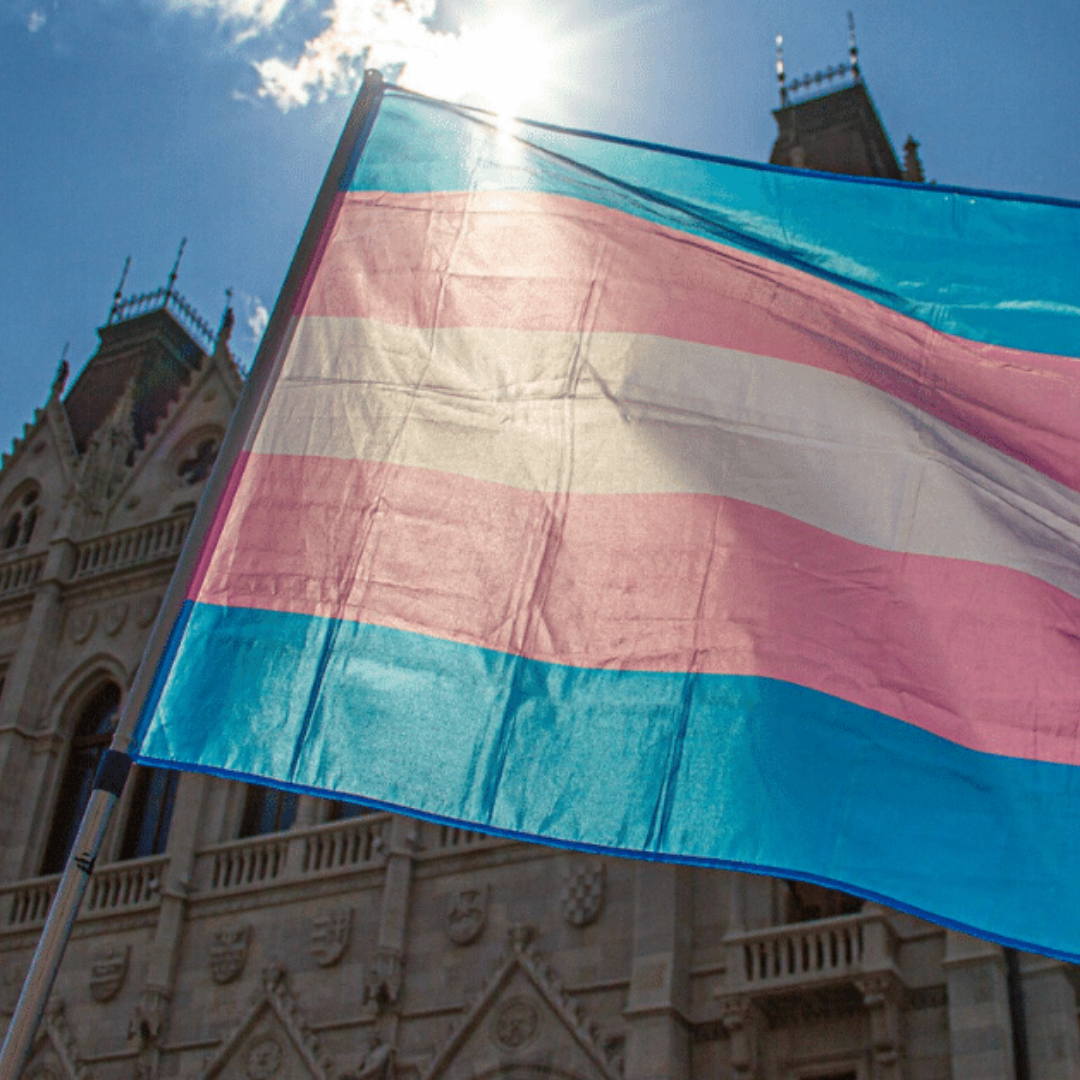Joint statement: Dark day for LGBTI community in Hungary as homophobic discriminatory bill and constitutional amendments are passed

Reacting to the Hungarian parliament’s decision to adopt a law that will strip non-married couples of the right to adoption and two constitutional amendments which further restrict the rights of LGBTQ people, leading human rights organisations have come together to condemn the decision.
David Vig, Director of Amnesty Hungary, said: “This is a dark day for Hungary’s LGBTQ community and a dark day for human rights. These discriminatory, homophobic and transphobic new laws – rushed through under the cover of the coronavirus pandemic – are just the latest attack on LGBTQ people by Hungarian authorities.”
Katrin Hugendubel the Advocacy Director at ILGA-Europe said: “These bills further restrict the rights of LGBTI children and parents in Hungary. LGBTI children will be forced to grow up in an environment which restricts them from being able to express their identities, and children across Hungary will be refused safe and loving families, as adoption is restricted only to married heterosexual couples. This attempt to rush through these discriminatory, homophobic and transphobic new laws are part of an ongoing attack on LGBTI people by Hungarian authorities.”
Masen Davis, Executive Director at Transgender Europe said: “Earlier this year, Hungary made it impossible for trans people to change their names and legal gender marker. We are deeply concerned for the health and safety of trans children and adults in Hungary in such a hostile climate. We call upon EU Commission President von der Leyen to address the rights of LGBT parents, the attempt to erase gender diverse children, and the ban on legal gender recognition in the Commission’s rule of law assessment and on-going Article 7 TEU proceedings against Hungary.”
Background:
The Hungarian Parliament passed a bill prohibiting adoption for non-married couples and amend the Constitution stating that “mother is a female and father is a male” and that Hungary “protects self-identity of the children’s sex by birth” which would further stigmatize the transgender and intersex people in Hungary.
ILGA-Europe is alarmed by Hungarian Parliament’s moves to abolish the national Equal Treatment Authority

Today, Tuesday 10th November 2020 the Justice Committee of the Hungarian Parliament tabled a bill that would abolish the Equal Treatment Authority (ETA), Hungary’s most important equality body set up in 2005.
The ETA has a broad mandate to investigate cases of discrimination on grounds of sex, race/ethnicity, religion, age, disability, sexual orientation and gender identity. In recent years the ETA was one of the last public bodies standing up for the rights of LGBTQI people in Hungary: they have delivered several decisions finding discrimination based on sexual orientation and gender identity by public bodies, and in April 2020 they criticized the Government’s plan to ban legal gender recognition.
The bill foresees the duties of the ETA to be assumed by the Commissioner for Fundamental Rights, who is a loyal supporter of the government, and very inactive on LGBTI issues. ILGA-Europe strongly condemns this attempt by the government to reduce the efficacy of the anti-discrimination body enforcing Act no. CXXV of 2003 on equal treatment and the promotion of equal opportunities in Hungary, thereby depriving many LGBTI people from pursuing justice in cases of LGBTI-phobic discrimination and protecting the rights of all minorities in Hungary.
We call on the Council of Europe and EU institutions to hold Hungary accountable to its commitments to the respect of fundamental rights as enshrined in the European Convention of Human Rights, EU Treaties and EU Charter of Fundamental Rights. Equality Bodies play a fundamental role in ensuring non-discrimination and respect for fundamental rights of all citizens.
The Equal Treatment Authority would be abolished in less than two months, on January 1 2021. There have been no public consultations or impact assessment carried out about the reform, indicating a clear attempt by the Hungarian government to further erode the rights of minorities in Hungary and an eradication of the work of the Authority’s work on equality.
ILGA-Europe, TGEU and Transvanilla welcome landmark judgement from the European Court of Human Rights recognising the right of refugees to legal gender recognition

In the judgement Rana v. Hungary delivered today, the European Court of Human Rights (ECHR) held that Hungary had breached its obligation to protect the right to private life under Article 8 of the Convention by rejecting the application of an Iranian transgender refugee to have his name and sex marker changed officially.
The judgement is even more significant because it arrives two months after the Hungarian Parliament approved a bill, replacing “sex” on the civil registry with “sex assigned at birth”, which effectively bans legal gender recognition in the country.
Back in 2017, when the case was introduced before the ECHR, it was possible to change one’s documents on the basis of an informal practice. However, the applicant’s request to have his name and sex marker officially changed was rejected because he did not have a Hungarian birth certificate.
The Hungarian Constitutional Court and the European Court of Human Rights noted that there was a legislative gap excluding all lawfully settled non-Hungarian citizens from accessing the procedures regardless of their circumstances, and that this gap “disproportionately restricted their right to human dignity”.
In the case at stake, the national authorities failed to consider the fact the applicant had been granted refugee status precisely because he had been persecuted on the grounds of his gender identity in Iran.
Importantly, not only did the Court recall the State’s positive obligation under Article 8 to secure the right to respect for private life, by providing a procedure allowing to have one’s gender identity legally recognised it also clarified that such an obligation extends to all lawfully settled non-national citizens.
Welcoming the judgement, Senior Litigation Officer with ILGA-Europe Arpi Avetisyan said: “This is an important and symbolic judgment – for the first time the Court confirms the right to legal gender recognition of refugees, and taking note of the right to human dignity as underscored by the Hungarian Constitutional Court. Significantly, it also reiterates States obligations to have procedures in place allowing recognition of gender identity and name change for trans people in general. We call on Hungarian government to implement the judgment swiftly and bring necessary changes”
TGEU Policy Officer Jonas Hamm added: “This judgement sends a strong message to one of the most marginalised groups within the European trans community but also European stakeholders. It confirms that trans rights are indeed human rights and trans refugees enjoy the same protection under the European Convention for Human Rights as everybody else. In times like these, this is a strong signal of hope to our most vulnerable members.”
“This judgement is timely for the European trans community and reassures what the Court had previously made clear: legal gender recognition has to be possible in states,” said Barnabás Hidasi, President of Transvanilla. “Now the court confirmed it has to be accessible also for refugees. 23 other applicants launched cases against Hungary with the help of Transvanilla in 2017 and in 2019. They are all Hungarian citizens whose LGR cases were delayed or not processed by authorities. We trust the Hungarian government will introduce a recognition procedure again in compliance with today’s decision.”
Further information:
- Find out more about the situation for trans and intersex people in Hungary.
- Find out more about ILGA-Europe’s strategic litigation work.
- Find out more about TGEU legal work.
- Find out more about Transvanilla’s current actions on legal gender recognition
- Read the full judgement.
- Read the joint third-party intervention of TGEU, ILGA Europe and Transvanilla Transgender Association submitted to the Court in October 2017.
For media requests to ILGA-Europe, TGEU and Transvanilla on this issue, please contact Ana Muñoz: ana@ilga-europe.org, +32 493 35 60 55
Hungary rolls back legal protections, puts trans and intersex people at risk

TGEU, ILGA-Europe, IGLYO, and OII Europe condemn decision of Hungarian Parliament to follow the government and restrict access to fundamental rights for trans and intersex people.
On 19 May 2020, following weeks of international outcry, the Hungarian Parliament voted 133 in favour, 57 opposed, to approve an omnibus bill, one article of which replaces the category of “sex” on the civil registry with one of “sex assigned at birth”.
The article within the omnibus bill, Article 33, amends the civil registry document, which is used as the basis for all legal identity documents for Hungarian citizens. Replacing the changeable characteristic of “sex” with an immutable one, “sex assigned at birth”, in practice Hungary has made legal gender recognition, the process by which trans and intersex people can bring their documents into alignment with their gender identity, impossible.
Before the proposal of this omnibus bill, the situation was bleak for trans and intersex Hungarians. According to the Second LGBTI Survey of the Fundamental Rights Agency, published last week, 76% of trans Hungarians believe that the Hungarian government “definitely does not effectively combat prejudice and intolerance against LGBTI people”, compared to an EU-28 average of only 38%. Additionally, 84% of trans respondents in Hungary reported that the main reason for increasing prejudice, intolerance, or violence in the country was “Negative stance and discourse by politicians and/or political parties”.
The international response was significant, with thousands of posts using the hashtag #drop33, referring to the specific article of the bill, as well as statements from the Council of Europe Commissioner for Human Rights, the European Parliament, the United Nations Special Procedures, and many more
Katrin Hugendubel, Advocacy Director for ILGA-Europe, said: “Legal gender recognition is the bedrock of access to equality and non-discrimination for trans and intersex people. Without it, these populations are subject to immense stigma, discrimination, harassment, and violence every time they use their identity documents – be it at the bank, when going to the doctor, when applying for a job, or even when applying for a cell phone contract.”
Dan Christian Ghattas, Executive Director of OII Europe, continues: “Intersex people can also need access to legal gender recognition, and are subject to discrimination and stigma when that is not possible. According to the FRA Survey, 21% of intersex Hungarians believe that barriers to legal gender recognition are their biggest obstacle.”
The European Court of Human Rights has consistently and clearly asserted that legal gender recognition falls within the right to private and family life in the European legal framework, specifically protected by Article 8 of the European Convention on Human Rights. ECtHR jurisprudence indicates that the personal characteristic of “sex” is one that, so long as it is publicly recorded by States, should be possible to change to protect the human rights of trans and intersex people to private and family life, to health, to found a family and marry, and to recognition before the law.
“We are dismayed by this decision to roll back established rights,” says Masen Davis, Interim Executive Director of Transgender Europe. “Trans and intersex Hungarians, as all people in Hungary, should have their human rights equally protected and without discrimination.”
For comment, contact: Ana Muñoz Padrós, ILGA-Europe: ana@ilga-europe.org, +32 493 35 60 55
Response to Hungarian Prime Minister Viktor Orbán regarding to Article 33 of the proposed Omnibus Bill, 2020

In response to Hungarian Prime Minister Viktor Orbán letter dated 5 May 2020, regarding to Article 33 of the proposed Omnibus Bill, 2020.
Dear Prime Minister Orbán,
Dear Deputy Secretary Schaller-Baross,
We write today to respond to your letter, dated 5 May 2020, to our organisations, of The European Region of the International Lesbian, Gay, Bisexual, Transgender and Intersex Association (ILGA-Europe), Organization Intersex International Europe (OII Europe), the regional umbrella organisation for intersex-led organisations in Europe, with members in more than 20 countries, and Transgender Europe (TGEU), in regards to Article 33 of the proposed omnibus bill of 2020, regarding reformulating the national registry to change the mutable category of “sex” to an immutable category of “sex at birth”.
As previously noted, we, along with our members in Hungary, strongly oppose the proposed amendment to the national registry, such that it will effectively make legal gender recognition for trans and intersex people impossible in Hungary, which contravenes EU and international human rights law and violates the well-established right to private and family life for trans and intersex Hungarians. Our previous letter, dated 24 April 2020, outlined the broad consensus among international human rights actors to this end.
We write today to address specific issues raised in your reply letter which are cause for concern. Firstly, we wish to address your reference to “a long-standing uncertainty in the interpretation of the law”. There is a clear understanding in European and international human rights law contexts that the mutable personal characteristic of “sex” is one that, so long as it is publicly recorded by States, should be possible to change to protect the human rights of trans and intersex people to private and family life, to health, to found a family and marry, and to recognition before the law.1 2 3 4 Legal gender recognition, the process by which one changes one’s sex marker in legal documents to reflect one’s gender identity, is clearly established in long-standing jurisprudence from the European Court of Human Rights,5 particularly when it comes to the fundamental right protected under Articles 8 and 12 of the European Convention of Human Rights.6 Replacing a mutable identity marker with an immutable one does not clarify an uncertainty in jurisprudence, but rather acts in direct contradiction of the Court to make legal gender recognition impossible, avoiding the State responsibility to protect and promote fundamental rights, in fact directly violating those fundamental rights. With this Article, Hungary will make protection of the fundamental human rights of its trans and intersex citizens impossible in practice and in law. Curtailment of fundamental rights cannot be the best available solution for addressing a legal “uncertainty”.
Additionally, in your reply letter, you assert that Article 33 of the omnibus bill in no way prevents individuals from “living according to his or her own identity and self-determination”. Unfortunately, this assertion is false. As is well-documented,7 8 access to legal gender recognition for trans and intersex people is intertwined with the protection of many of their human rights. Because the civil register is directly connected to all available identity documents in Hungary, this change not only fixes the sex marker in the registry, but in all other subordinate documents. This means in practice that trans and intersex people will be forced to live with documents that do not align with their gender identity and expression throughout their lifetimes, exposing them to increased discrimination, stigma, harassment, and violence, as well as to disparities in access to the rights to health, housing, education, employment, and to access goods and services without discrimination, as enshrined in the values of the European Union and the Council of Europe.
As ILGA-Europe, OII Europe and TGEU, we reaffirm our call on the Hungarian government to heed your responsibilities under the international human rights law framework, to engage in good faith reforms designed to protect the human rights of all Hungarian citizens including trans and intersex people, and thus to amend the omnibus bill to remove Article 33 prior to a vote in the full Parliament.
Kind regards,
Katrin Hugendubel
Advocacy Director, ILGA-Europe
1. e.g. Recommendation CM/Rec(2010)5 of the Committee of Ministers to member states on measures to combat discrimination on grounds of sexual orientation or gender identity, available from: https://search.coe.int/cm/Pages/result_details.aspx?ObjectID= 09000016805cf40a.
2. Parliamentary Assembly of the Council of Europe Resolution 2048 (2015), ‘Discrimination against trans people in Europe’.
3. Commissioner for Human Rights of the Council of Europe, Human Rights and Gender Identity (29 July 2009) CommDH/ IssuePaper(2009), available from: https://rm.coe.int/16806da753.
4. G v Australia, Communication No. 2172/2012 (CCPR/C/119/D/2172/2012) (UN HRC, 15 June 2017).
5. B v France [1993] 16 EHRR 1.
6. Goodwin v United Kingdom [2002] 35 EHRR 18.
7. Grant v United Kingdom [2006] ECHR 548.
8. Report of the Independent Expert on protection against violence and discrimination based on sexual orientation and gender identity (11 May 2018) UN Doc No. A/HRC/38/43.
What have happened?
– On 31 March, Trans Day of Visibility, the Hungarian government released a large bill consisting of many legislative proposals – one of these, Article 33, would make legal gender recognition impossible, massively curtailing the rights of trans and intersex citizens of Hungary.
– On 6 April, ILGA-Europe and TGEU released a statement calling on the Hungarian Parliament and the Parliament to drop Article 33 of a legislative omnibus bill.
– On 27 April, ILGA-Europe, OII-Europe, and TGEU sent a joint letter to Hungarian Prime Minister Viktor Orbán.- On 15 May, ILGA-Europe, OII-Europe, and TGEU sent a joint response to Hungarian Prime Minister Viktor Orbán’s letter.
– On 2 April, 22 Hungarian human rights and LGBT NGOs released a statement.
– On 2 April, the Council of Europe’s Commissioner for Human Rights shared a statement.
– On 14 April, the UN Independent Expert on protection against violence and discrimination based on sexual orientation and gender identity; the Special Rapporteur on the right of everyone to the enjoyment of the highest attainable standard of physical and mental health; the Special Rapporteur on the right to privacy and the Special Rapporteur on violence against women, its causes and consequences sent a letter to Hungarian government.
– On 20 April, the European Professional Association for Transgender Health (EPATH) and European Society for Sexual Medicine (ESSM), released a statement.
– On 15 April, 63 Members of the European Parliament sent a letter to Hungarian government.
– On 17 April, the Hungarian Psychological Association released a statement.
– On 17 April, the European Parliament passed a resolution.
– On 17 April, the UN High Commissioner on Human Rights referred explicitly to the bill as bad practice.- Transvanilla Association and All Out has collected over 24,000 signatures for a petition against the Article 33.
– You can SUPPORT the #Drop 33 campaign on Twitter, Instagram, or TikTok.- A vote in Parliament is expected on 19 May.
Letter to Hungarian Prime Minister Viktor Orbán: in regards to Article 33 of the proposed Omnibus Bill, 2020

In our continued call for the Hungarian government to stop the attack on legal gender recognition, we have sent a joint letter with OII-Europe and TGEU. In the letter, we list the international calls to #Drop33 of a legislative omnibus bill–which would deny access to legal gender recognition in the country–including from the COE Commissioner for Human Rights and an admonition from the UN High Commissioner for Human Rights.
Dear Prime Minister Orbán,
This letter, on behalf of The European Region of the International Lesbian, Gay, Bisexual, Transgender and Intersex Association (ILGA-Europe), a regional non-governmental organisation focused on the rights of LGBTI people with over 600 members in 54 countries in Europe and Central Asia, Organization Intersex International Europe (OII Europe), the regional umbrella organisation for intersex-led organisations in Europe, with members in more than 20 countries, and Transgender Europe (TGEU), a member-based oragnisation for the trans community in Europe and Central Asia with 140 member organisations in 44 countries, brings to your attention the response to Article 33 of the proposed omnibus bill of 2020, regarding reformulating the national registry to change the mutable category of “sex” to an immutable category of “sex at birth”.
We, along with our members in Hungary, strongly opposed the proposed amendment to the national registry, such that it will effectively make legal gender recognition for trans and intersex people impossible in Hungary, which contravenes EU and international human rights law and violates the well-established right to private and family life for trans and intersex Hungarians.
We write to bring to your attention the clear and strong call of many international human rights organs and actors in opposition to this measure. You will note that there have been objections published by:
- 22 Hungarian human rights and LGBT NGOs,
- the Hungarian Psychological Association,
- the Council of Europe’s Commissioner for Human Rights,
- 63 Members of the European Parliament,
- the European Parliament as a whole,
- the UN Independent Expert on protection against violence and discrimination based on sexual orientation and gender identity; the Special Rapporteur on the right of everyone to the enjoyment of the highest attainable standard of physical and mental health; the Special Rapporteur on the right to privacy and the Special Rapporteur on violence against women, its causes and consequences,
- the European Professional Association for Transgender Health (EPATH) and European Society for Sexual Medicine (ESSM), and
- the UN High Commissioner on Human Rights, which refers explicitly to the bill as bad practice. Additionally, a petition against the Article has collected over 22,000 signatures as of the writing of this letter.
As ILGA-Europe, OII Europe and TGEU, we call on you to heed your responsibilities under the international human rights law framework, and to amend the omnibus bill to remove Article 33 prior to a vote in the full Parliament.
Kind regards,
Katrin Hugendubel
Advocacy Director, ILGA-Europe
What have happened?
– On 31 March, Trans Day of Visibility, the Hungarian government released a large bill consisting of many legislative proposals – one of these, Article 33, would make legal gender recognition impossible, massively curtailing the rights of trans and intersex citizens of Hungary.
– On 6 April, ILGA-Europe and TGEU released a statement calling on the Hungarian Parliament and the Parliament to drop Article 33 of a legislative omnibus bill.
– On 27 April, ILGA-Europe, OII-Europe, and TGEU sent a joint letter to Hungarian Prime Minister Viktor Orbán.- On 15 May, ILGA-Europe, OII-Europe, and TGEU sent a joint response to Hungarian Prime Minister Viktor Orbán’s letter.
– On 2 April, 22 Hungarian human rights and LGBT NGOs released a statement.
– On 2 April, the Council of Europe’s Commissioner for Human Rights shared a statement.
– On 14 April, the UN Independent Expert on protection against violence and discrimination based on sexual orientation and gender identity; the Special Rapporteur on the right of everyone to the enjoyment of the highest attainable standard of physical and mental health; the Special Rapporteur on the right to privacy and the Special Rapporteur on violence against women, its causes and consequences sent a letter to Hungarian government.
– On 20 April, the European Professional Association for Transgender Health (EPATH) and European Society for Sexual Medicine (ESSM), released a statement.
– On 15 April, 63 Members of the European Parliament sent a letter to Hungarian government.
– On 17 April, the Hungarian Psychological Association released a statement.
– On 17 April, the European Parliament passed a resolution.
– On 17 April, the UN High Commissioner on Human Rights referred explicitly to the bill as bad practice.- Transvanilla Association and All Out has collected over 24,000 signatures for a petition against the Article 33.
– You can SUPPORT the #Drop 33 campaign on Twitter, Instagram, or TikTok.- A vote in Parliament is expected on 19 May.
#Drop33: Europe’s Two Largest Networks of LGBTI and Transgender Organisations call on Hungarian Parliament to Reject Attempts to Ban Legal Gender Recognition

ILGA-Europe and Transgender Europe, the two largest networks of LGBTI and trans organisations in Europe and Central Asia, representing over 800 organisations and groups across the region collectively, are calling on the Hungarian Parliament and the Justice Committee of the Parliament to drop Article 33 of a legislative omnibus bill, which would deny access to legal gender recognition in the country.
The Hungarian government Tuesday, 31 March, released a draft omnibus bill simultaneously amending many laws and provisions. One of the laws proposed for amendment relates to legal gender recognition for trans people – proposing to replace “sex” with “sex assigned at birth” in the national registry and on identity documents, as cited in Article 33 of the omnibus bill.
The cited reasoning for this amendment is:
“The sex entered into the civil registry is based on facts determined by doctors, declared by the registry. The registry certifies the facts and rights it includes until proven otherwise, therefore it does not create rights. However, the sex declared by the registry could create rights or obligations, and therefore it is necessary to define the term of birth sex. Given that completely changing one’s biological sex is impossible, it is necessary to lay it down in law that it cannot be changed in the civil registry either.”
Functionally, this amendment would mean that legal gender recognition would become impossible under any circumstances in Hungary, because all current mentions of “sex” in identity documents would be changed to the immutable characteristic of “sex assigned at birth”. Currently identity documents can be changed in Hungary by law, although processes have been suspended for nearly two years.
The amendment comes at a time when the Hungarian Parliament has given Prime Minister Viktor Orbán power to rule by decree indefinitely because of the COVID-19 crisis, which means he no longer needs to consult other lawmakers before making policy decisions. Orbán’s attacks against the LGBTI community go back to 2015, when he blocked a draft agreement at the Council of the European Union which called on the European Commission to tackle homophobic and transphobic discrimination. He has also refused to ratify the Istanbul Convention because of its definition of gender as a social construct, and in 2017 he hosted the International Organisation of the Family (IOF), a US group which campaigns against same-sex marriage.
The Hungarian people overwhelmingly support access to legal gender recognition for trans people. According to a Median representative survey in September 2019, 70% of respondents believe that trans people should have access to legal gender recognition and only 17% believed that trans people should under no circumstances change their gender or name in their papers.
According to Advocacy Director of ILGA-Europe, Katrin Hugendubel: “Case law from the European Court of human rights clearly establishes the right to legal gender recognition for transgender people. International human rights actors must act firmly and swiftly to stop this extreme rollback in a settled area of human rights law.”
Trans-led Hungarian civil society organisation Transvanilla Transgender Association President Barnabás Hidasi affirms that “legal gender recognition ensures a person’s right to self-determination, and that procedures must be existent, quick, transparent, and accessible”.
“Hungary’s proposed Article 33 runs counter to well-established international human rights standards, including the Council of Europe’s recommendations to member states,” said Masen Davis, Interim Executive Director at Transgender Europe (TGEU). “This dangerous bill would subject trans people in Hungary to increased scrutiny, discrimination, and violence. The Parliament should be focusing on what the people of Hungary to survive the COVID-19 pandemic, not using this crisis as cover to roll back the rights of an already-marginalised group.”
ILGA-Europe and Transgender Europe call on the Hungarian Parliament and the Justice Committee of the Parliament to #Drop33, amending the omnibus bill to protect the fundamental rights of all Hungarians. Further, we call on international human rights actors to raise awareness of this issue, and call on the Hungarian government to mobilise to protect trans people in Hungary and everywhere from derogations of their rights.
For further comment, contact Ana Muñoz Padrós, Communication and Media Officer, ILGA-Europe at ana@ilga-europe.org or +32 2 609 56 59.
Alarming Rise in Hate Attacks on European LGBTI Communities

As a sharp rise in hate attacks on LGBTI communities in Hungary, Serbia and Poland is reported, ILGA-Europe calls for the EU Commission to step up its leadership in the protection of fundamental rights
Just one week on from winning the bid for Euro Pride 2022, Belgrade’s Pride Information Centre was attacked yesterday by a gang of fans of the Red Star football team, who kicked windows and threw glass bottles. It is the fourth attack on the premises since December of last year and the centre is under police protection. However, although the police were informed of the possibility of this attack, they did nothing to prevent it. The Serbian authorities said they would not investigate the attack since no one was injured and the property was not damaged.
On Saturday, counter-protestors at the Equality March in the Polish city of Lublin were found to be in possession of explosive devices, gas canisters and firecrackers. A couple carrying a home-made bomb was arrested at the beginning of the march and are now being detained for three months before being charged. According to a court expert, the bomb could have caused deaths at the march.
One week ago in Budapest, on September 26, the neo-Nazi group Our Nation Movement (Mi Hazánk Mozgalom) disrupted a movie screening about tackling bullying LGBTQ youth at schools. Between five and ten members of the group broke into the screening room carrying banners saying “Stop LGBT Propaganda” and “Zero Tolerance”, shouting and insulting the participants.
When the police arrived on the scene they silently stood by and watched as the Our Nation Movement members repeatedly threatened participants with “beating them up” and demanded “banning faggots”. Only when someone poured a cup of yoghurt on the Our Nation Movement banner, did the police intervene.
In all three countries, Hungary, Poland and Serbia, there have been moves to impose restrictions on LGBTI people, and a rise in political anti-LGBTI hate speech.
In 2017 the Hungarian Prime Minister, Viktor Orbán hosted an American Christian organisation that has been accused of being an anti-LGBT hate group. Opening the event, Orbán accused the European Union of being dominated by a “relativising liberal ideology that’s an insult to families.”
In October last year Orbán issued a decree revoking funding for gender studies programmes in Hungarian universities and on September 9 this year, Orbán said that if his candidate is elected the next major of Budapest, he will change the Constitution to ban lesbian and gay people from adopting.
Despite being led by a lesbian Prime Minister, in August of this year, the right-wing Serbian government banned artificial insemination and IVF for anyone who has a history of homosexual relations during the last five years.
In Poland, the governing Law and Justice (PiS) party have made countering “LGBT Ideology” part of its platform for the country’s October 13 elections. In July, a government-sponsored newspaper issued ’LGBT-free zone’ stickers in advance of an Equality march in the city of Bialystok. A law graduate in the capital of Warsaw compared the stickers to anti-Jew signs displayed by the Nazis in Germany.
Says Katrin Hugendubel, Advocacy Director with ILGA-Europe: “We strongly condemn any attack on LGBTI communities, whatever form they take. Particularly worrying is the escalation in violence in Poland, where explosive devices were taken to the Lublin Equality March, presumably intending to cause grievous bodily harm or death.
“These attacks are integrally linked to roll-backs in legislation, anti-LGBTI hate speech from those in authority, and in the case of the Serbian and Hungarian attacks, a serious lack of intervention by the police and state authorities. The safety of the LGBTI community is not separate from the safety of all who live in Europe, and the erosion of that safety is a marker for the erosion of all fundamental human rights. That is why now, more than ever, we need governments and international institutions to stand strong on fundamental rights and against hate and discrimination, and we need the next European Commission to adopt an EU-level LGBTI strategy to step up its leadership and actions in the protection of fundamental rights.”
Budapest court rules foreign same-sex marriages must be recognised in Hungary

A judge at Budapest District Court has ruled that same-sex couples who have married outside Hungary have the right to their union being recognised as a registered partnership in Hungary.
The judgment of the court reaffirms the right to freedom of movement and family life of same-sex couples. The ruling established that foreign marriages should be recognised in Hungary as equivalent to registered partnerships, available in Hungary since 2009. This is an important development for the freedom of movement of same-sex couples wishing to settle in as a family in Hungary.
Yesterday the European Parliament adopted a resolution on protection and non-discrimination with regard to minorities, including LGBTI people, in EU member states. Among other measures, the Parliament called the Commission to “take action in order to ensure that LGBTI individuals and their families can exercise their right to free movement in accordance with both Article 21 of the TFEU and Article 21 of the EUCFR”.
These two developments echo the issues at stake in the Romanian Coman and Others case pending before the Court of Justice of the European Union (CJEU). A positive ruling from the CJEU would reaffirm the right to freedom of movement of same-sex couples at the European level.
According to the opinion of the Advocate General in this case the term “spouse” of the Freedom of Movement Directive includes same-sex spouses. Should the Court follow Advocate General’s opinion, it would mean huge step forward for equal treatment of all EU citizens to move freely across the EU.
Rana v. Hungary

Change of name and gender of Iranian refugee
(Application no. 40888/17), 7 November 2017
Find here the communicated case.
- The present case concerns an Iranian trans man who was granted refugee status in Hungary. The Hungarian authorities summarily rejected his request for legal gender recognition (LGR), invoking the absence of a specific legal procedure applying to his situation.
- In their submission to the European Court of Human Rights ILGA-Europe together with TGEU and Transvanilla Transgender Association argued that:
- Under European Refugee law, States have an obligation to provide legal status and suitable documentation, to ensure access to social rights and not to discriminate. LGR is seen as an element of legal status and as key to ensuring migrants’ access to public or private services, or to the labour market. Mismatching documents can cause re-traumatisation of trans refugees during asylum procedures and in the aftermath.
- State Parties have a positive obligation under Article 8 to adopt LGR procedures that are “effective and accessible.” The Court found violations of the Convention in several other cases on account of LGR schemes that were misconceived or incomplete, giving rise to arbitrary or unfair outcomes. The same principle is firmly entrenched in other international law and professional guidelines. Lastly, comparatively more countries chose to provide recognised refugees with LGR.
O.M. v. Hungary

Arbitrary detention
(Application no. 9912/15), 21 October 2015
Find Court’s communication here.
- The case concerned immigration detention of a gay asylum seeker from Iran for nearly two months before granting refugee status in Hungary. The applicant complained that his asylum detention was not lawful or justified. It was arbitrary, because the court ordered it without properly analysing the legal grounds, his personal circumstances or the applicability of less stringent measures.
- ILGA-Europe together with the AIRE Centre, the ECRE and the ICJ submitted that:
- The Contracting Parties have an obligation under the Convention to take account of the particular risks that the detention of asylum-seekers entails, including, in particular, when deciding to detain those asylum-seekers who might have been exposed to abuse and/or may risk violence and discrimination on account of their sexual orientation while in detention.
- The interveners stressed the relevance of the EU asylum acquis, the EU Charter of Fundamental Rights and the 1951 UN Convention relating to the Status of Refugees, as amended by its 1967 Protocol, 2 to the determination of the scope and content of Contracting Parties’ obligations under Art 5(1) of the European Convention on Human Rights
- The European Court of Human Rights delivered its judgement on 5 July 2016.
- The Court held that the applicant’s detention verged on arbitrariness and did not contain any adequate reflection on his individual circumstances as a member of a vulnerable group by virtue of belonging to a sexual minority in Iran. Consequently the Court found a violation of Article 5 § 1 of the Convention.
Accessing Health: Context and Challenges for LGBT People in Central & Eastern Europe
This research project is the first of its size and scope has to be carried out among LGBT communities in Bosnia and Herzegovina, Hungary, Macedonia, Moldova and Romania. As such, the initiative is of groundbreaking importance and the data collected will serve to inform ongoing advocacy and policy work.
The report presents the findings on health and access to the health care system by the LGBT communities in five Central and Eastern European countries, as well as draws conclusions and makes recommendations to the relevant stakeholders, including international organisations. It also introduces a methodology and lessons learnt, which could be used for further research.
ILGA-Europe used the results of the research to lobby the EU Commission for the repeal of all laws discriminating on the basis of sexual orientation as a condition of accession to the Union. As of August 2005, only one out of the 13 newly acceded countries – Bulgaria – continues to have such laws.
Meeting the challenge of accession

Surveys on sexual orientation discrimination in countries joining the European Union.
This report is a comparative summary of national reports written in ten countries (Czech Republic, Estonia, Hungary, Latvia, Lithuania, Malta, Poland, Slovakia, Slovenia and Romania). It highlights the violence and discrimination some people face because of their sexual orientation.
The data and statements collected show that discrimination on grounds of sexual orientation affects several areas of the life of lesbian, gay and bisexual (LGB) people. Discrimination exists in the family, in education, in the workplace, in the army, in health services, in housing and in the church. In order to end such discrimination and human rights abuses, the report puts forward some recommendations to the new member states and to the European Union institutions.
These recommendations concern changes in the law, policies and practices affecting LGB people in the accession countries. It aims at reinforcing the instruments dealing with discrimination in the EU and in the member states.
Equality for lesbians and gay men- a relevant issue in EU accession process

This report, from 2001, maps the legal and social situation of lesbians and gay men in 13 candidate countries to EU accession.
Three years after the publication of the “Equality Report” on the situation of lesbians and gay men in the EU Member States, ILGA-Europe has produced the current report, “Equality for Lesbians and Gay Men – A Relevant Issue in the EU Accession Process”, with a view to filling the information gap regarding the situation for lesbians and gay men in the candidate countries. The report was produced as part of the project “Lesbian and Gay People in Candidate Countries to EU Membership”.
All 13 accession countries are represented with individual reports: Bulgaria, the Czech Republic, Cyprus, Estonia, Hungary, Latvia, Lithuania, Malta, Poland, Romania, Slovakia, Slovenia, and Turkey. A further chapter presents the European Union’s legislation and policies that are relevant to the rights of lesbians and gays in the accession countries, policies which have developed very significantly in the recent past.